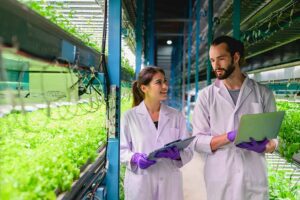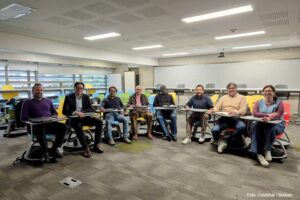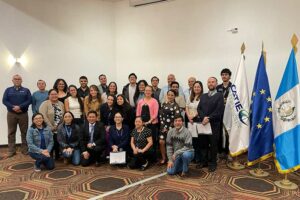INNOVA-VERDE Competition Recognizes 22 Ideas for Banana, Date, Plantain, Cuadrado, and Abacá
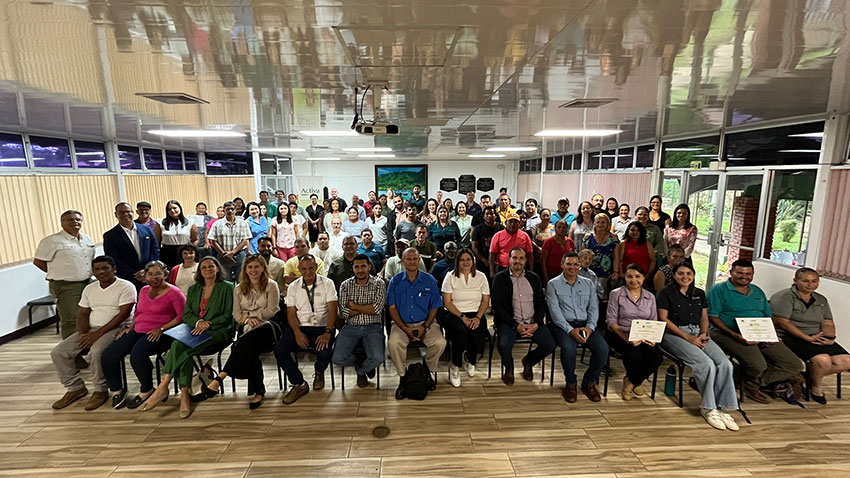
- The winning ideas provide direct benefits to farming families and the environment
- Support includes non-reimbursable funds, mentorship, training, and technical assistance
With enthusiasm and a strong commitment to innovation in musaceae production, the TRANSFORMA-INNOVA Program held the award ceremony for the INNOVA-VERDE Ideas Competition on Friday, March 28. The third edition of the competition is aimed at small and medium-sized enterprises, as well as farms led by organizations, associations, and indigenous families. The event took place at the facilities of the National Banana Corporation (CORBANA) in La Rita de Guápiles.
The competition awarded €150,000 (approximately 82 million colones) in non-reimbursable funds among 22 winning proposals to develop innovative and sustainable solutions for banana, plantain, abacá, and other musaceae production. The winners, mostly from the province of Limón, will have the opportunity to implement their projects with matching personal contributions of the same amount.
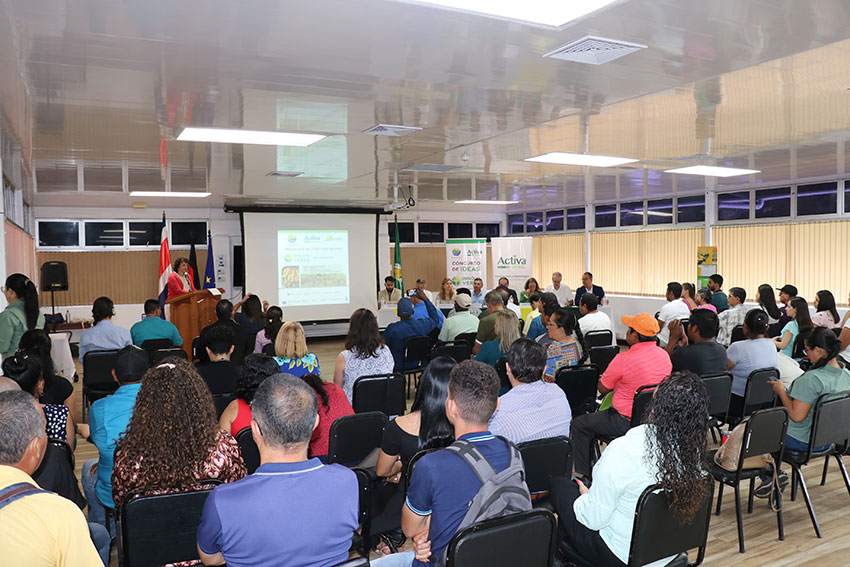
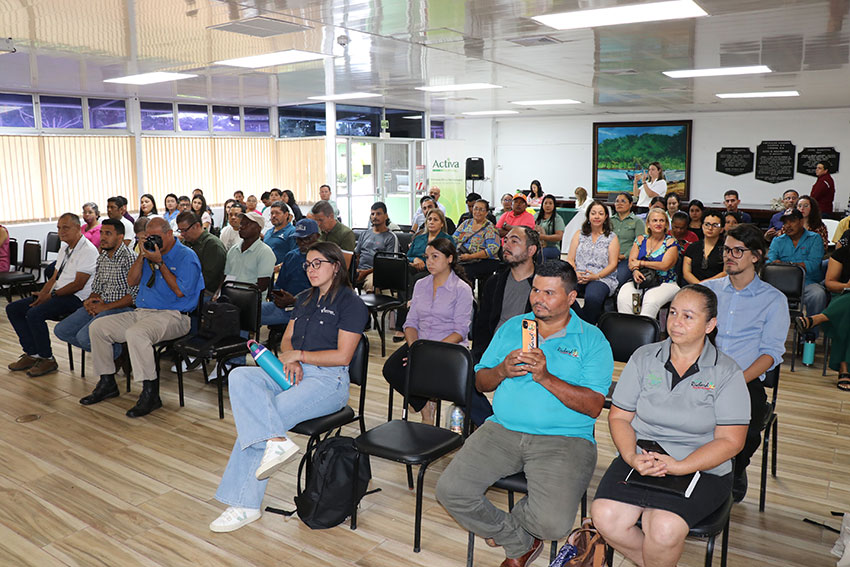
“The Musaceae NAMA is the newest NAMA we are promoting from MAG. These resources will be a crucial input for the development of innovative initiatives that will facilitate the implementation of this Musaceae NAMA, promoting the use of cleaner technologies with less environmental impact,” said Fernando Vargas Pérez, Vice Minister of Agriculture and Livestock.
Inclusive Ideas
The winning ideas were selected through a rigorous and participatory process involving 13 evaluators from institutions such as the Ministry of Agriculture and Livestock (MAG), the German Development Cooperation GIZ, the Tropical Agricultural Research and Higher Education Center (CATIE), the National Banana Corporation (CORBANA), the United Nations Development Programme (UNDP), and the Environmental Bank Foundation (FUNBAM), among others. ACTIVA CATIE will manage the funds, provide follow-up, and offer guidance to the winners in implementing their projects.
Sylvanie Jardinet, Cooperation Officer of the European Union, stated that “these innovative ideas, emerging from the cultural richness and diversity of our regions, will not only generate direct benefits for farming families but also significantly contribute to environmental conservation.”
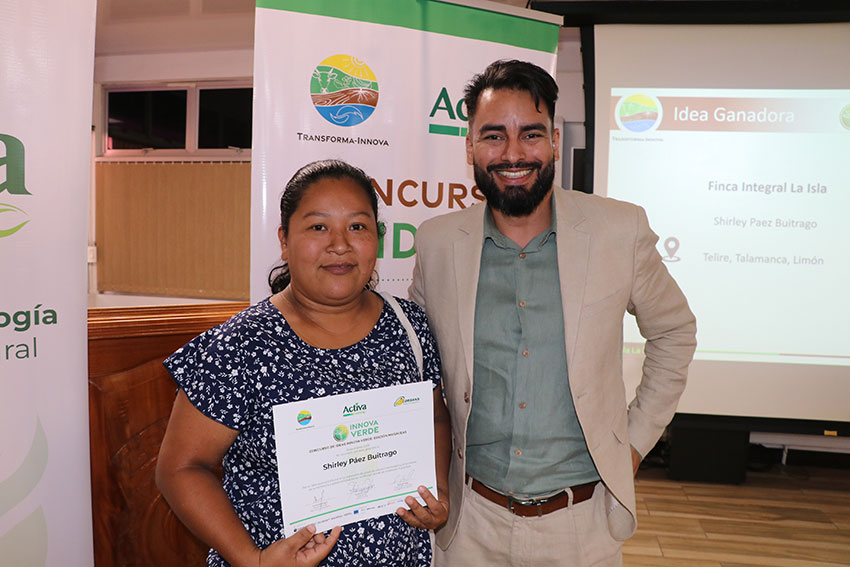
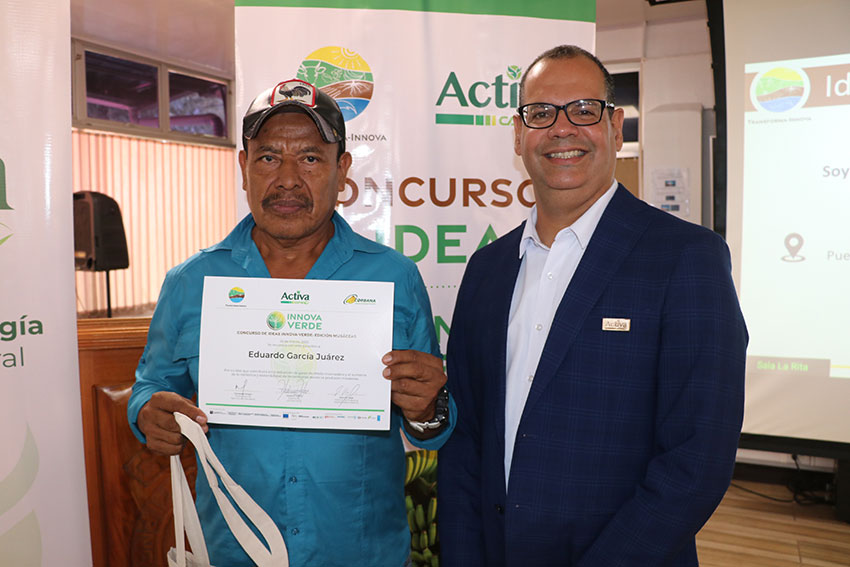
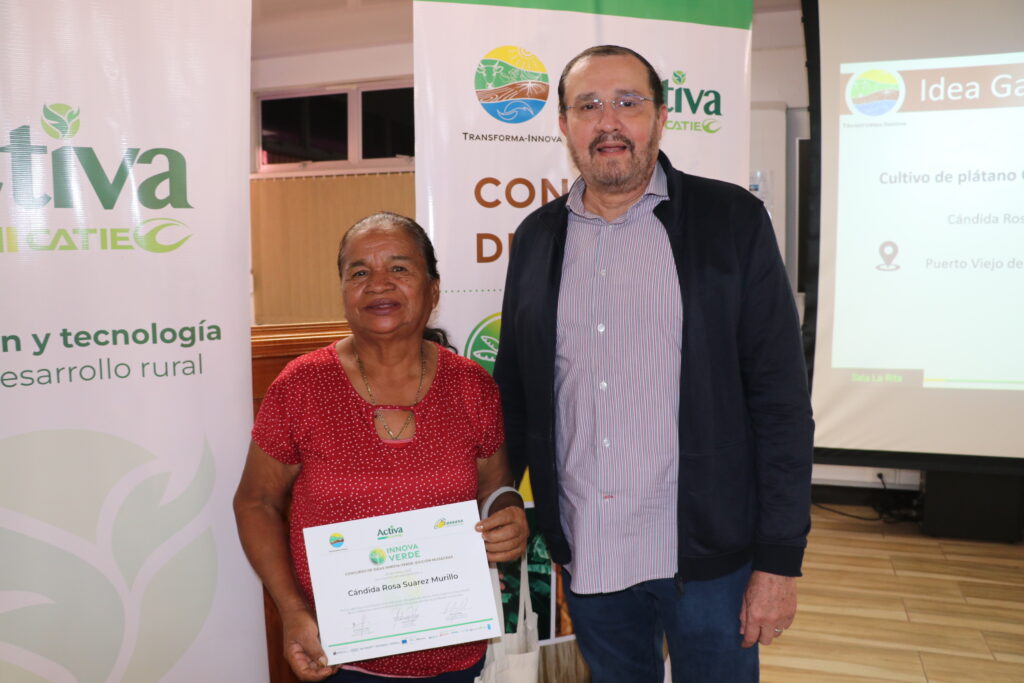
The program seeks to support traditionally underrepresented groups. As a result, 13 women and six indigenous or Afro-descendant individuals are among the awardees, reflecting the competition's focus on equity and inclusion.
“These initiatives, led by diverse social sectors, demonstrate that the musaceae sector is evolving towards more sustainable and viable proposals for the future. This is why awards like these are essential in motivating small and medium-sized producers,” said Vladimir Valera, Director of the Innovation and Entrepreneurship Laboratory: ACTIVA-CATIE, from CATIE’s Forests and Biodiversity in Productive Landscapes Unit.
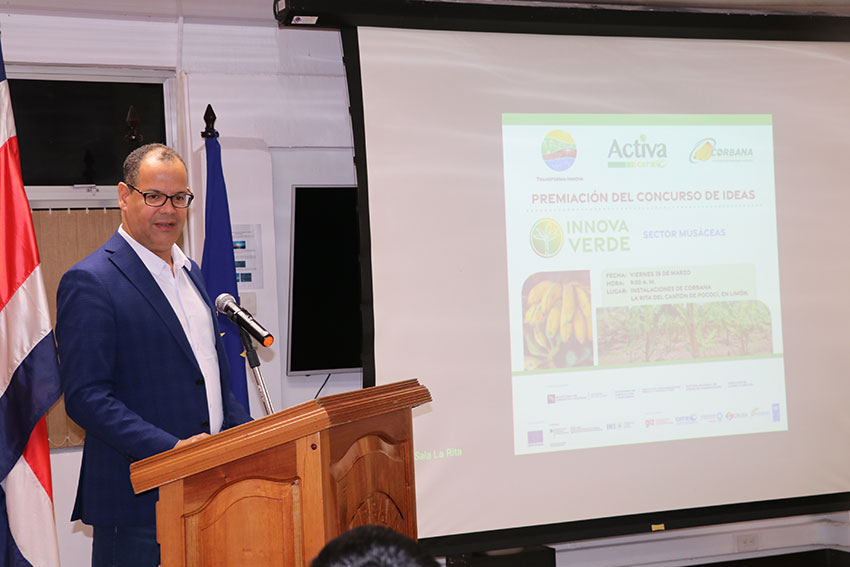
Impactful Solutions
Among the winning ideas is one from the Telire district in Talamanca, which, through a circular economy approach in the musaceae sector, aims to improve the income of Bribrí indigenous women from the Yorkín community while enhancing banana crop productivity.
In La Rita de Pococí, another project focuses on semi-organic dehydrated dates, while in Puerto Viejo de Sarapiquí, some proposals seek to sustainably and diversely renew plantain plantations.
Alexandra Herr, Counselor at the German Embassy in Costa Rica, praised the fact that the winning ideas benefit various age groups and exhibit strong female leadership.
A Joint Effort to Support the Sector
This initiative and the award event brought together various entities committed to innovation and sustainability in the musaceae sector. These entities have contributed financing or expertise in different ways to ensure the initiative has a real impact. expertise para que esta iniciativa llegue a tener un impacto real en el sector musáceas.
“With these funds, the program seeks to support initiatives from small and medium-sized musaceae producers that contribute to Costa Rica's climate change adaptation and mitigation goals. We are pleased to know that these non-reimbursable funds will help replicate and scale innovative solutions driven by women and indigenous people, backed by various Costa Rican institutions in the sector,” said Alberto Vega, Director of the TRANSFORMA-INNOVA Program.
“At CORBANA, we celebrate these initiatives that emerge from the communities and demonstrate that innovation in the musaceae sector is possible, necessary, and transformative. Supporting these ideas strengthens the social and economic fabric of the regions where our bananas are produced,” stated Marcial Chaverri, General Manager of CORBANA.
During the event, the importance of continuing to invest in ideas led by the producer community itself was emphasized, with a focus on climate resilience and respect for biodiversity.
Nancy Mora Mora, from San Jerónimo de Esparza, is one of the awardees. Ten years ago, she decided to leave her financial consulting career and take over her father’s 50-year-old farm. She shifted from livestock farming to creating a food forest driven by sustainability. Through the competition, she proposed her project of freeze-dried native banana conversion into a natural sweetener. “Thanks to ACTIVA, I was able to shape my idea and find support. The guidance has been excellent, with incredible technical support that has helped me develop, implement, and bring my idea to reality. I am very happy,” she said.
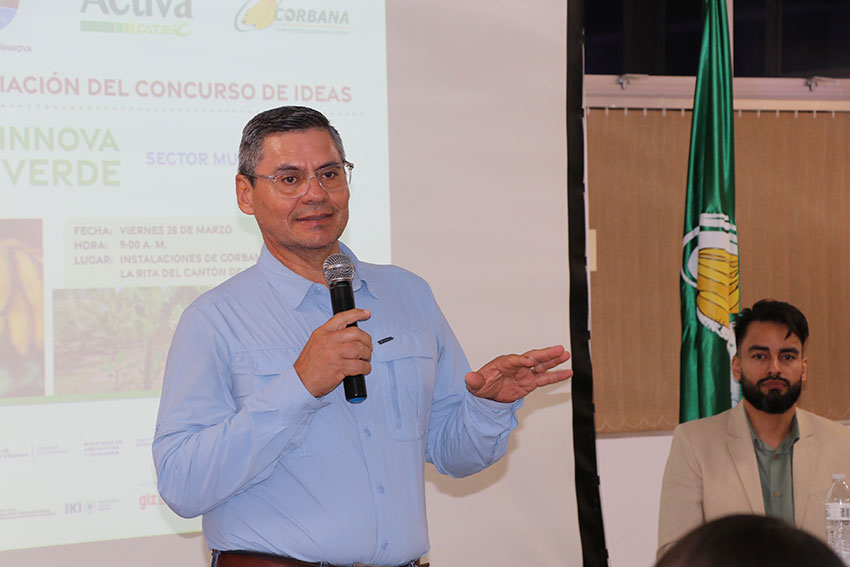
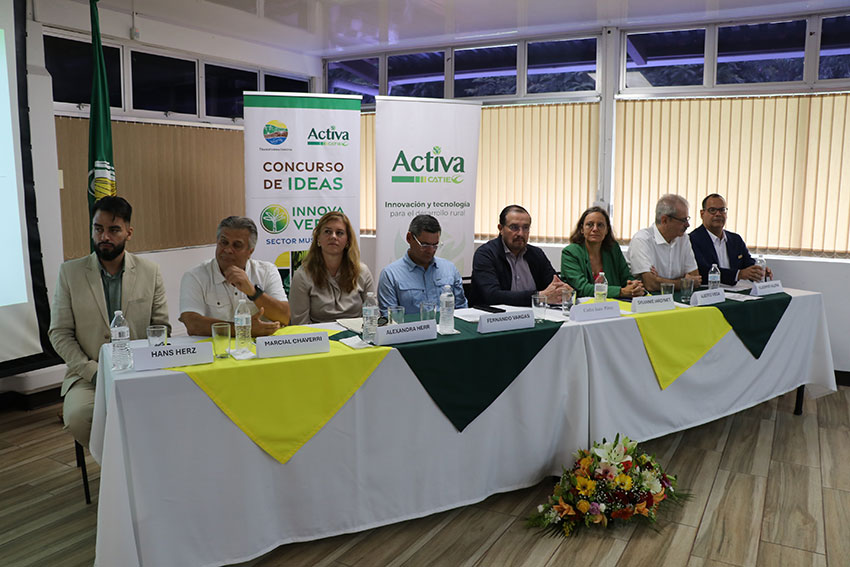
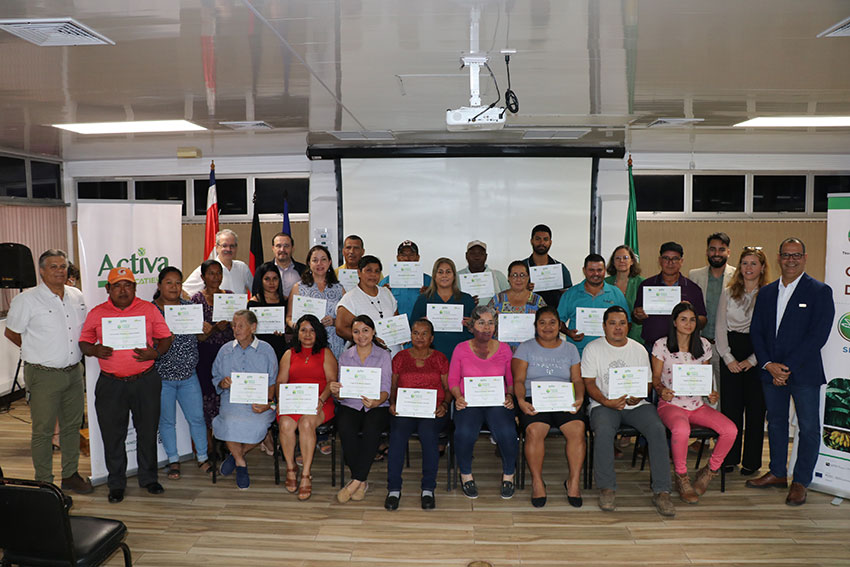
About the INNOVA-VERDE Competition
The INNOVA-VERDE Ideas Competition is executed by ACTIVA-CATIE, coordinated by the German Development Cooperation GIZ as part of the TRANSFORMA-INNOVA Program, and strategically supported by CORBANA.
The TRANSFORMA-INNOVA Program is co-financed by the European Union, the German Federal Ministry for Economic Affairs and Climate Action (BMWK), and the German Federal Ministry for the Environment, Nature Conservation, and Consumer Protection (BMUV) through the International Climate Initiative (IKI). The program is implemented by the German Development Cooperation GIZ in collaboration with the Tropical Agricultural Research and Higher Education Center (CATIE), Conservation International (CI), the Costa Rica - United States Foundation for Cooperation (CRUSA), the Environmental Bank Foundation (FUNBAM), and the United Nations Development Programme (UNDP).
More information:
Vladimir Valera
Director
Director Innovation and Entrepreneurship Laboratory (ACTIVA-CATIE)
Forests and Biodiversity in Productive Landscapes Unit
Vladimir.valera@catie.ac.cr
Karen Aguilar
Contest Mentor
ACTIVA-CATIE
Forests and Biodiversity in Productive Landscapes Unit
musaceas@catie.ac.cr
Hans Herz
Agribusiness Advisor
TRANSFORMA-INNOVA Program
GIZ
hans.herzmendez@giz.de
Written by:
Esteban Rodríguez Zamora
Communicator
Information Technology and Communication
CATIE
esteban.rodriguez@catie.ac.cr

